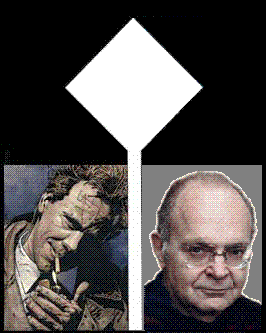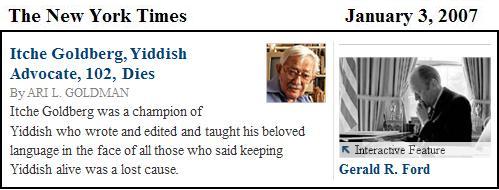"Time for you to see the field." —Bagger Vance

See also The Matthew Field .
An image suggested by Google's observance today
of Mies van der Rohe's 126th birthday—

Related material:
See also yesterday's Chapter and Verse by Stanley Fish,
and today's Arts & Letters Daily .
In memory of director Ulu Grosbard (continued from yesterday)
From http://scripturetext.com/matthew/13-44.htm —
Again the kingdom of heaven is like unto treasure hid in a field
the which when a man hath found he hideth and for joy thereof
goeth and selleth all that he hath and buyeth that field
ΚΑΤΑ ΜΑΤΘΑΙΟΝ 13:44 Greek NT: Byzantine/Majority Text (2000)
παλιν ομοια εστιν η βασιλεια των ουρανων θησαυρω κεκρυμμενω εν τω αγρω
LEXICON —
παλιν adverb
palin pal'-in: (adverbially) anew, i.e. (of place) back, (of time) once more, or (conjunctionally) furthermore or on the other hand — again.
ομοια adjective – nominative singular feminine
homoios hom'-oy-os: similar (in appearance or character) — like, + manner.
εστιν verb – present indicative – third person singular
esti es-tee': he (she or it) is; also (with neuter plural) they are
η definite article – nominative singular feminine
ho ho: the definite article; the (sometimes to be supplied, at others omitted, in English idiom) — the, this, that, one, he, she, it, etc.
βασιλεια noun – nominative singular feminine
basileia bas-il-i'-ah: royalty, i.e. (abstractly) rule, or (concretely) a realm — kingdom, + reign.
των definite article – genitive plural masculine
ho ho: the definite article; the (sometimes to be supplied, at others omitted, in English idiom) — the, this, that, one, he, she, it, etc.
ουρανων noun – genitive plural masculine
ouranos oo-ran-os': the sky; by extension, heaven (as the abode of God); by implication, happiness, power, eternity; specially, the Gospel (Christianity) — air, heaven(-ly), sky.
θησαυρω noun – dative singular masculine
thesauros thay-sow-ros': a deposit, i.e. wealth — treasure.
κεκρυμμενω verb – perfect passive participle – dative singular masculine
krupto kroop'-to: to conceal (properly, by covering) — hide (self), keep secret, secret(-ly).
εν preposition
en en: in, at, (up-)on, by, etc.
τω definite article – dative singular masculine
ho ho: the definite article; the (sometimes to be supplied, at others omitted, in English idiom) — the, this, that, one, he, she, it, etc.
αγρω noun – dative singular masculine
agros ag-ros': a field (as a drive for cattle); genitive case, the country; specially, a farm, i.e. hamlet — country, farm, piece of ground, land.
"The high-end diamond game is played
on a very small field by only a few players."
— Matthew Hart in Vanity Fair , Sept. 2016 issue

Alicia Vikander and Matt Damon in "Jason Bourne" (2016).
The linked-to trailer was uploaded on April 20, 2016.
For related entertainment, see posts of April 2016…
in particular, those related to the April 20 death of
"Diamonds Are Forever" director Guy Hamilton.

"I think there's a lot of meritocracy, a lot of blue-ribbon talk here."
– Chris Matthews on President Obama's Tuesday night speech
And here…

Detail from cover of current New Yorker
in Thursday afternoon's Log24 post
See also "Saramago" in this journal
as well as his Nobel Prize lecture.
“What on earth is
a concrete universal?”
— Robert M. Pirsig
From A Shot at Redemption—

John Constantine,
cartoon character, and
Donald E. Knuth,
Lutheran mathematician
A photo opportunity —

and a recent cartoon:
From Calvin College,
today’s meditation:
Characters
Two items from a Wikipedia watchlist today:
1. User Loyola added a list of central characters to the article on The Glass Bead Game.
2. A dialogue between the Wikipedia characters Prof02 and Charles Matthews continues.
Item 2 seems almost to echo item 1.
The Bead Game, a classic novel by Hermann Hesse, is, in part, a commentary on German cultural history, and the Prof02-Matthews dialogue concerns the Wikipedia article on Erich Heller, a noted scholar of German cultural history.
Matthews is an expert on the game of Go. The Bead Game article says that
“The Game derives its name from the fact that it was originally played with tokens, perhaps analogous to those of an abacus or the game Go….
Although invented after Hesse’s death, Conway’s Game of Life can be seen as an example of a Go-like glass bead game with surprisingly deep properties; since it can encode Turing machines, it contains in some sense everything.”
For some related thoughts on cellular automata (i.e., Conway’s game) and Go, see The Field of Reason with its links Deep Game, And So To Bed.
For some related thoughts on Turing, see the November 2006 Notices of the American Mathematical Society (special issue on Turing).
For some related religious reflections, see Wolfram’s Theory of Everything and the Gameplayers of Zan, as well as the Log24 entries of last Halloween.
Serious
"I don't think the 'diamond theorem' is anything serious, so I started with blitzing that."
— Charles Matthews at Wikipedia, Oct. 2, 2006
"The 'seriousness' of a mathematical theorem lies, not in its practical consequences, which are usually negligible, but in the significance of the mathematical ideas which it connects. We may say, roughly, that a mathematical idea is 'significant' if it can be connected, in a natural and illuminating way, with a large complex of other mathematical ideas."
— G. H. Hardy, A Mathematician's Apology
Matthews yesterday deleted references to the diamond theorem and related material in the following Wikipedia articles:
Affine group
Reflection group
Symmetry in mathematics
Incidence structure
Invariant (mathematics)
Symmetry
Finite geometry
Group action
History of geometry
This would appear to be a fairly large complex of mathematical ideas.
See also the following "large complex" cited, following the above words of Hardy, in Diamond Theory:
Affine geometry, affine planes, affine spaces, automorphisms, binary codes, block designs, classical groups, codes, coding theory, collineations, combinatorial, combinatorics, conjugacy classes, the Conwell correspondence, correlations, design theory, duads, duality, error correcting codes, exceptional groups, finite fields, finite geometry, finite groups, finite rings, Galois fields, generalized quadrangles, generators, geometry, GF(2), GF(4), the (24,12) Golay code, group actions, group theory, Hadamard matrices, hypercube, hyperplanes, hyperspace, incidence structures, invariance, Karnaugh maps, Kirkman's schoolgirl problem, Latin squares, Leech lattice, linear groups, linear spaces, linear transformations, Mathieu groups, matrix theory, Meno, Miracle Octad Generator, MOG, multiply transitive groups, octads, the octahedral group, orthogonal arrays, outer automorphisms, parallelisms, partial geometries, permutation groups, PG(3,2), polarities, Polya-Burnside theorem, projective geometry, projective planes, projective spaces, projectivities, Reed-Muller codes, the relativity problem, Singer cycle, skew lines, sporadic simple groups, Steiner systems, symmetric, symmetry, symplectic, synthemes, synthematic, tesseract, transvections, Walsh functions, Witt designs.
Postmodern
Postmortem
“I had a lot of fun with this audacious and exasperating book. … [which] looks more than a little like Greil Marcus’s Lipstick Traces, a ‘secret history’ tracing punk rock through May 1968….”
— Michael Harris, Institut de Mathématiques de Jussieu, Université Paris 7, review of Mathematics and the Roots of Postmodern Thought, by Vladimir Tasic, Notices of the American Mathematical Society, August 2003
For some observations on the transgressive predecessors of punk rock, see my entry Funeral March of July 26, 2003 (the last conscious day in the life of actress Marie Trintignant — see below), which contains the following:
“Sky is high and so am I,
If you’re a viper — a vi-paah.”
— The Day of the Locust,
by Nathanael West (1939)
As I noted in another another July 26 entry, the disease of postmodernism has, it seems, now infected mathematics. For some recent outbreaks of infection in physics, see the works referred to below.
“Postmodern Fields of Physics: In his book The Dreams of Reason, H. R. Pagels focuses on the science of complexity as the most outstanding new discipline emerging in recent years….”
— “The Semiotics of ‘Postmodern’ Physics,” by Hans J. Pirner, in Symbol and Physical Knowledge: The Conceptual Structure of Physics, ed. by M. Ferrari and I.-O. Stamatescu, Springer Verlag, August 2001
For a critical look at Pagels’s work, see Midsummer Eve’s Dream. For a less critical look, see The Marriage of Science and Mysticism. Pagels’s book on the so-called “science of complexity” was published in June 1988. For more recent bullshit on complexity, see
The Critical Idiom of Postmodernity and Its Contributions to an Understanding of Complexity, by Matthew Abraham, 2000,
which describes a book on complexity theory that, besides pronouncements about physics, also provides what “could very well be called a ‘postmodern ethic.’ “
The book reviewed is Paul Cilliers’s Complexity and Postmodernism: Understanding Complex Systems.
A search for related material on Cilliers yields the following:
|
Janis Joplin, Postmodernist ” …’all’ is ‘one,’ … the time is ‘now’ and … ‘tomorrow never happens,’ …. as Janis Joplin says, ‘it’s all the same fucking day.’ It appears that ‘time,’ … the linear, independent notion of ‘time’ that our culture embraces, is an artifact of our abstract thinking … The problem is that ‘tomorrow never happens’ …. Aboriginal traditionalists are well aware of this topological paradox and so was Janis Joplin. Her use of the expletive in this context is therefore easy to understand … love is never having to say ‘tomorrow.’ “ |
“That’s the dumbest thing I ever heard.”
— Ryan O’Neal in “What’s Up, Doc?”
A more realistic look at postmodernism in action is provided by the following news story:
| Brutal Death of an Actress Is France’s Summertime Drama
By JOHN TAGLIABUE The actress, Marie Trintignant, died Friday [Aug. 1, 2003] in a Paris hospital, with severe head and face injuries. Her rock star companion, Bertrand Cantat, is confined to a prison hospital…. According to news reports, Ms. Trintignant and Mr. Cantat argued violently in their hotel room in Vilnius in the early hours of [Sunday] July 27 at the end of a night spent eating and drinking…. In coming months, two films starring Ms. Trintignant are scheduled to debut, including “Janis and John” by the director Samuel Benchetrit, her estranged husband and the father of two of her four children. In it, Ms. Trintignant plays Janis Joplin. |
” ‘…as a matter of fact, as we discover all the time, tomorrow never happens, man. It’s all the same f…n’ day, man!’ –Janis Joplin, at live performance in Calgary on 4th July 1970 – exactly four months before her death. (apologies for censoring her exact words which can be heard on the ‘Janis Joplin in Concert’ CD)”
— Janis Joplin at FamousTexans.com
All of the above fits in rather nicely with the view of science and scientists in the C. S. Lewis classic That Hideous Strength, which I strongly recommend.
For those few who both abhor postmodernism and regard the American Mathematical Society Notices

as a sort of “holy place” of Platonism, I recommend a biblical reading–
Matthew 24:15, CEV:
“Someday you will see that Horrible Thing in the holy place….”
See also Logos and Logic for more sophisticated religious remarks, by Simone Weil, whose brother, mathematician André Weil, died five years ago today.
Powered by WordPress